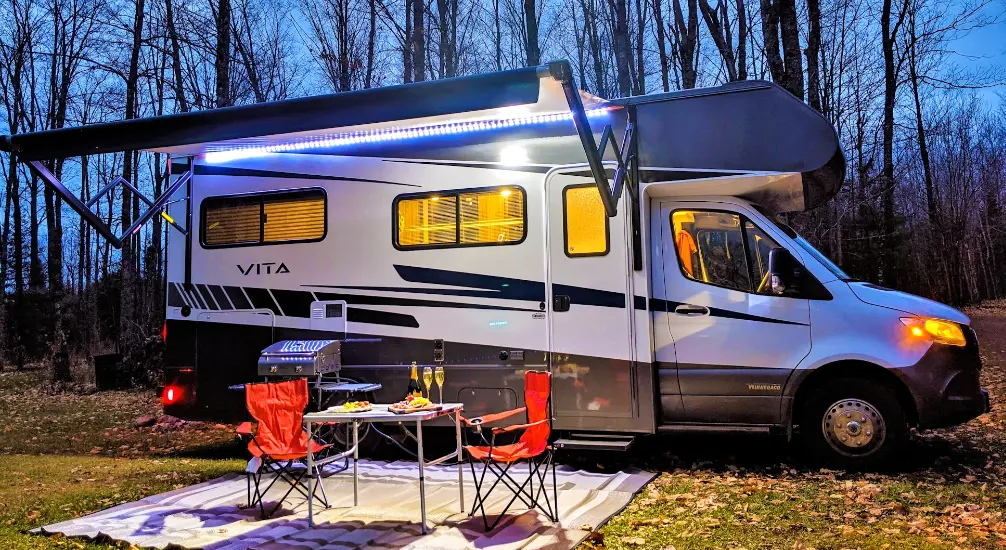
As the allure of off-grid adventures continues to grow, more and more RV enthusiasts are seeking sustainable and reliable energy solutions. One such solution that has garnered significant attention is the RV solar generator. This article delves into the benefits, components, and considerations of incorporating a solar generator into your RV setup.
What is an RV Solar Generator?
An RV solar generator is a portable power system that harnesses energy from the sun to generate electricity. Unlike traditional generators that rely on fossil fuels, solar generators use photovoltaic (PV) panels to convert sunlight into electrical power, which is then stored in batteries for later use. This eco-friendly alternative offers a clean, quiet, and renewable source of energy, making it ideal for outdoor enthusiasts who wish to minimize their environmental impact.
Benefits of Using an RV Solar Generator
- Eco-Friendly: Solar power is a renewable resource that produces no emissions, reducing your carbon footprint and promoting a cleaner environment.
- Cost-Effective: While the initial investment may be higher, solar generators can save you money in the long run by eliminating fuel costs and reducing maintenance expenses.
- Quiet Operation: Unlike noisy gas-powered generators, solar generators operate silently, providing a peaceful camping experience.
- Energy Independence: With a solar generator, you can venture off-grid without worrying about access to fuel or electrical hookups.
- Low Maintenance: Solar panels have no moving parts, resulting in minimal wear and tear and reduced maintenance requirements.
Key Components of an RV Solar Generator System
- Solar Panels: These are the primary components that capture sunlight and convert it into electrical energy. They come in various sizes and efficiencies, typically measured in watts.
- Charge Controller: This device regulates the voltage and current coming from the solar panels to prevent overcharging the batteries.
- Battery Bank: Batteries store the generated electricity for use when the sun isn’t shining. Common options include lead-acid, lithium-ion, and AGM batteries.
- Inverter: An inverter converts the stored DC (direct current) power from the batteries into AC (alternating current) power, which is used by most household appliances.
- Mounting Hardware: This includes brackets, rails, and other fixtures needed to securely attach the solar panels to your RV.
Choosing the Right RV Solar Generator
When selecting an RV solar generator, consider the following factors:
- Power Needs: Calculate your daily energy consumption to determine the size and capacity of the solar generator you’ll need. Consider all the appliances and devices you’ll be powering.
- Portability: If you plan to move frequently, opt for a lightweight and compact system that’s easy to set up and transport.
- Budget: While high-quality systems offer better performance and longevity, they also come at a higher price. Balance your budget with your energy needs and desired features.
- Expandability: Choose a system that allows for future expansion, so you can add more panels or batteries as your energy requirements grow.
- Durability: Ensure the components are built to withstand harsh weather conditions and rough handling during travel.
Installation and Maintenance Tips
- Proper Placement: Install the solar panels in a location that receives maximum sunlight exposure throughout the day. Tilt them at an angle that optimizes solar gain.
- Regular Cleaning: Keep the panels clean and free of debris to maintain their efficiency. Use a soft brush or cloth and water to remove dirt and dust.
- Monitor Performance: Regularly check the charge controller and battery levels to ensure everything is functioning correctly. Address any issues promptly to avoid damage.
- Secure Connections: Inspect all wiring and connections periodically to prevent loose or corroded contacts, which can reduce system performance.
RV solar generators offer a sustainable and efficient way to power your adventures, providing freedom and flexibility to explore off-grid destinations. By understanding the key components, benefits, and considerations, you can make an informed decision and enjoy the many advantages of solar energy on your next RV trip. Embrace the power of the sun and embark on a greener, quieter, and more independent journey.




